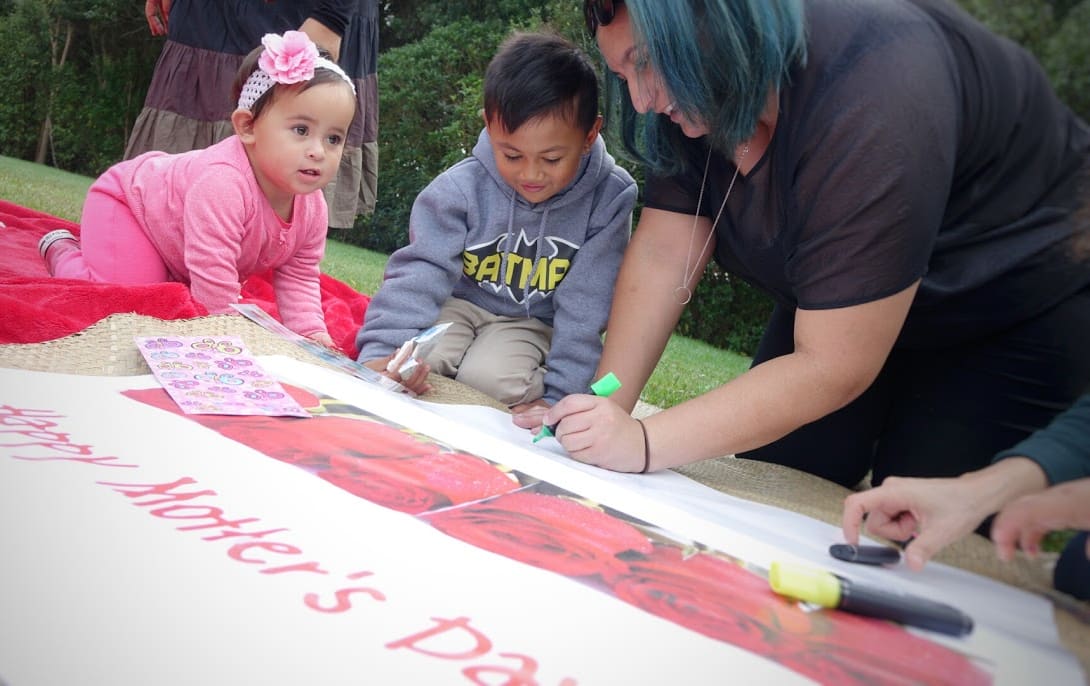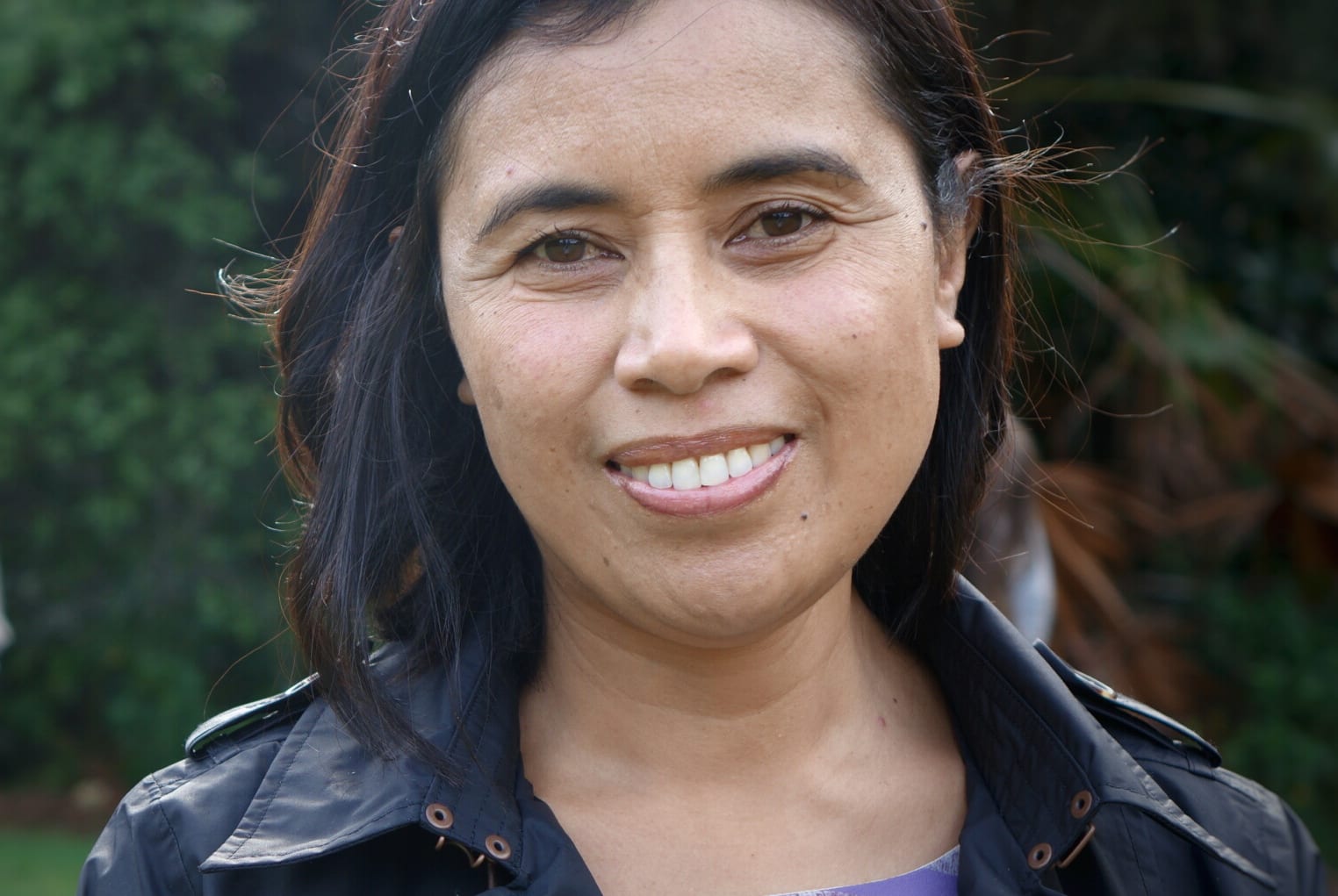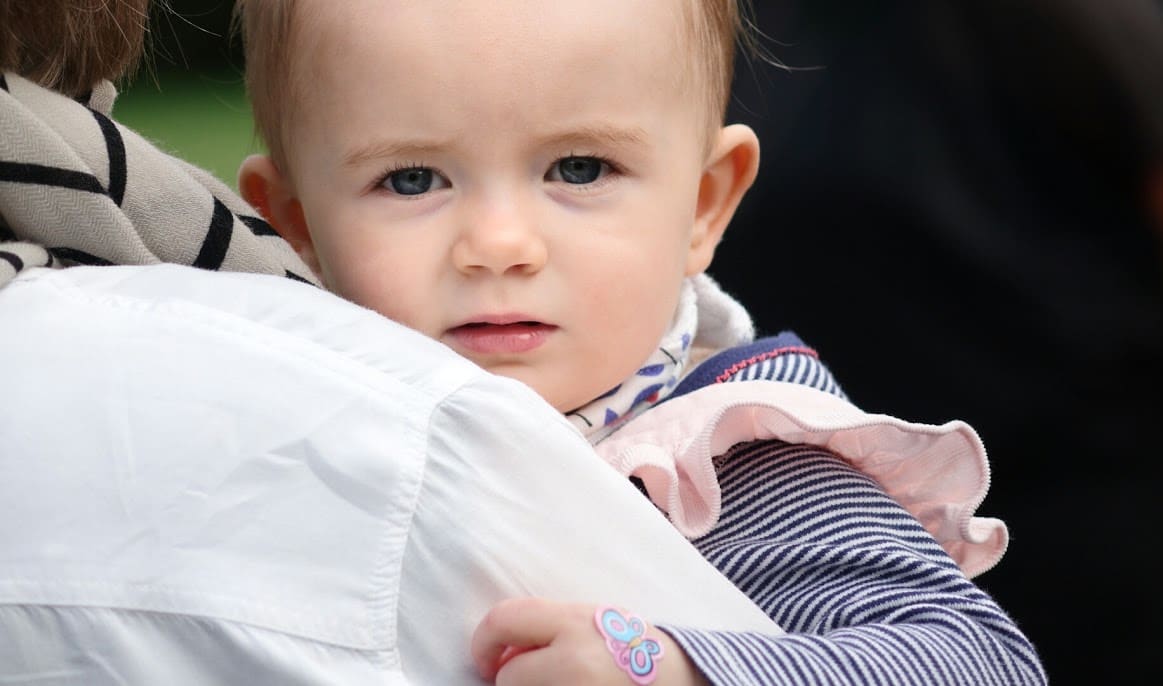The government would be using an aggressive tactic if it moved to veto plans for 26 weeks paid parental leave, the bill's architect Sue Moroney says.
Ms Moroney, a handful of parents and caregivers and half a dozen babies and infants took to a park near the Prime Minister's Auckland home to make their point.

The protest is the first of its kind planned. Photo: RNZ / Kim Baker Wilson
The so-called protest picnic was the first of a series of events nationwide aiming to garner support for the bill to extend paid leave for parents.
The government has already said it will veto the proposed legislation if it makes it through to a third reading.
"They have to decide if they are going to use the actually aggressive tactic of using a financial veto or whether they're going to listen to the voice of the people," Ms Moroney said.
She said everyone had a stake in the outcome of her bill.
"If we don't get this right, if we continue to put families under stress in those early months then we can expect that we are planning for bad outcomes for those children.
"We can expect to be building more prisons, we can expect for our hospital admissions to go up, we can expect to be spending more money on remedial education if we don't invest," she said.
Ms Moroney said research and evidence showed that bonding and attachment with babies in their early month would make them resilient for the rest of their lives.

Natalie Poi Photo: RNZ / Kim Baker Wilson
Natalie Poi was at the picnic with her daughter Sage, who turned one today.
She said she is the first of her children to be fed with formula rather than breast fed because of the strains of needing to return to work.
"With breast feeding I was worried I wasn't at home long enough to wean her off... I was a bit sad that it had to be like that.
Ms Poi said the current paid parental leave period of 18 weeks was not enough.
"It goes really fast, I didn't want to go back because she was so young... maternity leave played a big deal in me choosing whether she was breast fed of formula fed.
Jacinta Fa'alili-Fidow from the TAHA Well Pacific Mother and Infant Service at the University of Auckland told parents it was important for families to be with their babies.
"Eighteen weeks just isn't enough when we've got policies in place that say to breast feed up to six months, and yet we send them back to work after 18 weeks.
"Having children is an investment in our society, and actually having healthy thriving children is an investment," she said.

Photo: RNZ / Kim Baker Wilson

